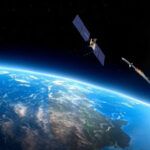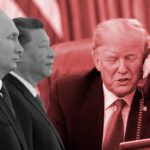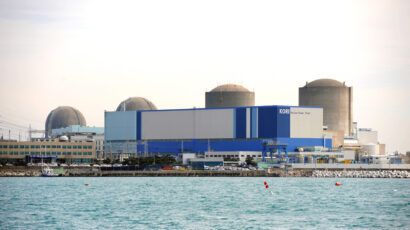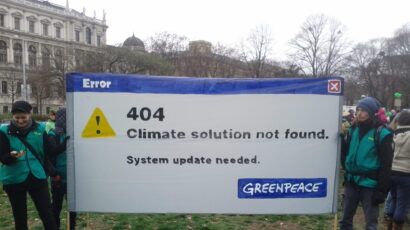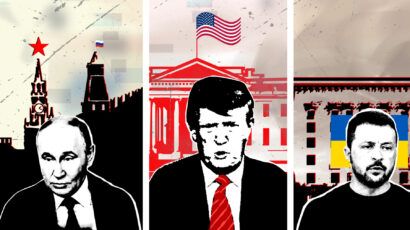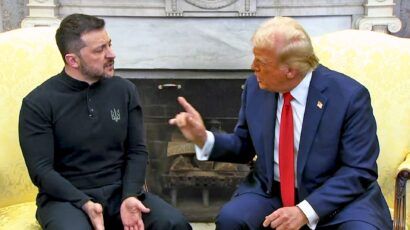Export controls at the crossroads
By Ian J. Stewart | October 15, 2015
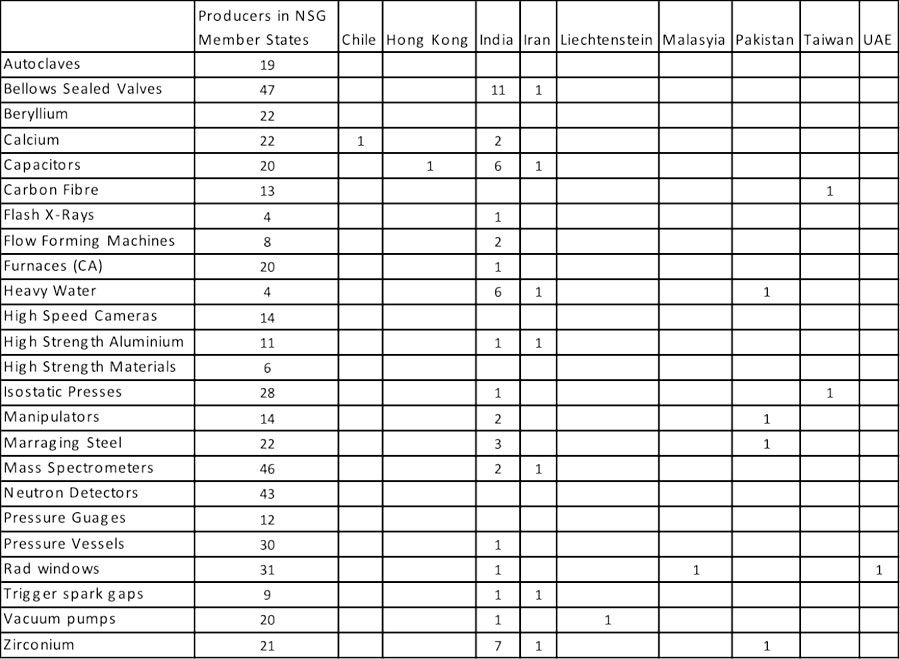
In 2012, two Italian marines guarding an Italian oil tanker off the coast of South India opened fire on what they believed were pirates, but apparently were Indian fishermen. The deaths led to a fierce dispute, as India has attempted to try the marines on murder charges, over the objections of Italy, which insists that because the shooting took place in international waters, the two men should be tried in Italy. In August, the International Tribunal for the Law of the Sea called for India to suspend its trial of the men, pending international arbitration.
The Indian Supreme Court has delayed further proceedings until January, and the marines' legal fate remains unclear. But this seemingly minor diplomatic incident has already affected international relations in a far-reaching way.
Early in October, it became known that members of the Missile Technology Control Regime had not taken a decision to accept India’s application to join the regime during its 2015 plenary meeting in the Netherlands. It is likely that Italy blocked finalization of the application because of its dispute with India over the prosecution of the Italian marines.
India’s acceptance into the missile control regime was expected to be the first step in having India join the four main export control regimes, the others being the Wassenaar Arrangement, the Australia Group, and perhaps most significant, the Nuclear Suppliers Group. Italy’s actions set back an effort, led by the United States, to integrate India into the non-proliferation architecture, and Rome's effective veto of India's application highlights flaws in the current governance arrangements associated with export controls in general.
India and the regimes. India’s willingness to join the export control regimes represents a remarkable turnaround. As a leading member of the non-aligned movement, India has, over many decades, been a leading opponent of the very concept of export controls.
India’s past criticisms of export controls are many and varied but have included concerns about their cartel-like nature. Export controls, India has traditionally argued, could be used to maintain the hegemony of the developed world over the developing world. (A review of export licence denials by the United Kingdom and United States over recent years shows no evidence to support this latter premise.) The apparent willingness of the members of the Missile Technology Control Regime (other than Italy, whose actions are unrelated to proliferation) to include India had the potential to undercut this argument.
Despite some concerns among traditional members of the regimes, there are good reasons for opting to admit India. The country is a substantial producer of nuclear-related technologies. India is also a leading producer of industrial chemicals and pharmaceuticals and has an advanced space and missile program. India certainly meets the original criteria used by the United States when deciding which governments to invite to a meeting in London that led to the creation of the Nuclear Suppliers Group: that participants be capable of nuclear supply.
Despite claims to the contrary, India also has a relatively mature export control system, even if it is not yet fully aligned to the lists of international export control regimes. There are signs also that India’s export control system is functioning in practice rather than just on paper, with at least one recent high-profile interdiction of illicit trade in nuclear-related goods (although India, like other states, should have done more to share its findings in that case with the UN’s Iran sanctions panel of experts). Certainly, it can be argued that India’s export control system is at least as good as the worst performers among the current membership of the regimes and is certainly not in the lower rungs in terms of implementation.
Others oppose Indian membership based upon India’s failure to sign the nuclear Non-Proliferation Treaty (NPT). It is worth bearing in mind, however, that the original purpose of the Nuclear Suppliers Group was to bring together countries capable of nuclear supply. There was no requirement that these suppliers had to have signed the NPT. Indeed, a central purpose of holding the initial meeting of suppliers in 1975 was to facilitate the participation of France—a state that possessed nuclear weapons but that had not signed (and stated that it would never sign) the NPT. (It eventually acceded to the treaty in 1992.)
A final set of concerns regarding Indian membership relates to the consensus-based nature of the export control regimes. Will India disrupt the functioning of the regime because of its ideological support for non-aligned states or its difficult relations with China and Pakistan, both of which may also seek membership in at least some of the regimes?
The possibility that India will be disruptive cannot be discounted, but it is unlikely. The regimes are predominately technical rather than political forums, and the principal decisions taken in the regimes relate to changes to the lists of goods that the regimes control. All member states are already seeking to achieve the optimum balance between the need for control on the one hand and the need for trade and the free movement of goods on the other. As often as not, the purpose of an amendment is to optimise this balance, and it is unlikely that India would object to such amendments. Additionally, in seeking to join the regimes, India is seeking to demonstrate its responsible power status—a necessary prerequisite to prerequisite to a much‑coveted position as a permanent member of the UN Security Council. If India were to be disruptive, there can be little doubt that its interest in joining the Security Council would be challenged.
Italy’s decision. In February 2012, Italian marines Massimiliano Latorre and Salvatore Girone were guarding the Italian oil tanker Enrica Lexie when they opened fire, killing two Indian fishermen off the Kerala coast. The marines stated that they mistook the fishermen for pirates.
The case involving the marines sparked a bitter diplomatic row between India and Italy. Italy has maintained that as the shooting took place in international waters, the men should be tried in Italy, basing appeals on international law granting jurisdiction to the country that owns the ship involved in an incident in international waters. The Italian government has also claimed that the two men have sovereign immunity as part of the Italian Navy. Latorre was given leave to stay in Italy for six months following medical treatment, and Girone is currently staying in the Italian embassy in Delhi while on bail. Italy has claimed that Girone has been kept “hostage,” an assertion the Indian government disputes.
India has argued that it has the right to try the marines as the incident took place in its exclusive economic zone and is not a maritime incident but "double murder at sea." India has ruled out the possibility of the death penalty, invoking an anti-piracy law to try the marines.
However important this incident may be in the national context, Italy’s linking it to Indian membership in the Missile Technology Control Regime is likely to irk many of the countries involved, including the United States. Italy’s own implementation of export controls has never been viewed as particularly strong in comparison to its main European counterparts, and Italy may be accused of putting national interest ahead of international peace and security in not allowing India into the regime.
Italy has likely been under intense diplomatic pressure since rumors began to circulate that Italy might block India’s membership. If, as suspected, it was Italy that blocked a decision on India’s application to the regime, Rome’s relationships with key allies is likely to be set back in some way, although it is not clear how this will manifest itself in practice.
Broader implications: Export controls at the crossroads. There are larger issues related to governance of the export control regimes that the Indian issue sheds new light on. Perhaps foremost amongst these is the challenge of globalization. Globalization has not necessarily resulted in a substantial spread of the manufacturing base for proliferation-sensitive goods beyond the traditional suppliers in the nuclear weapon states—as research by Project Alpha, summarized in Table 1, has shown.
Table 1. Headquarter locations of producers of NSG selected controlled goods
But the volume of goods being shipped—and transhipped via third countries—has increased significantly over recent years. Online trading platforms and other factors are transforming the nature of supply chains and making it possible for anyone, anywhere to act as a middleman or broker in a proliferation transaction. Proliferation‑sensitive information is also increasingly easy to transfer quickly and via electronic means.
These factors exacerbate the challenge of tackling illicit trade in dual-use goods and materials by non-state actors, which has become the dominant method of proliferation as state-to-state transfers of complete weapons of mass destruction capabilities have declined nearly to the point of non-existence. As a result, while illicit trade itself and the methods used are nothing new, the membership-based export control regimes look increasingly outmoded. There is instead a need to engage all states in measures to prevent illicit trade, and to engage companies across their entire global supply chain.
The regimes have long undertaken outreach, to encourage and enable implementation of the regime’s rules in non-member states members (known as adherence). It was perhaps the adoption of UN Security Council resolution 1540 that went farthest in promoting the adoption of export controls—or more accurately, strategic trade controls—to non-members. In fact, resolution 1540 requires states to implement export controls and to take other measures to prevent illicit trade.
But the resolution does not acknowledge the export control regimes, and the 1540 committee and its group of experts have not yet broken down barriers to cooperation with the regimes. The members of the export control regimes generally also seem to view resolution 1540 as a distinct tool, rather than as a key mechanism through which to extend the principles of the regimes to non-members.
The export control regimes are the principal mechanism for sharing practical information on implementation of non-proliferation measures. For example, most of the regimes have an information exchange mechanism through which states can share information on interpretation of the lists of products, methods, and trends in illicit trade that they have spotted.
This question of how the major export control regimes work in a globalized environment might be less pressing if the regimes themselves could agree to a strategy on membership and adherence—and if the consensus-based rules of the regime did not allow members to undermine such a strategy over unrelated issues.
The Missile Technology Control Regime experience this year is a prime example of such dysfunctionality, by which one relatively minor player—Italy—was able to keep India from participating. Additionally, applications from another nine European states were also blocked by Russia at the 2015 plenary. But globalization has challenged export controls in many ways.
For example, China's private companies have long been the largest source of goods and materials for Iran’s and likely also North Korea’s nuclear and ballistic missile programs. At the same time, China is gradually becoming a substantial manufacturer of proliferation-sensitive goods, as Table 1 shows.
China’s application to join the Missile Technology Control Regime has been stalled since 2002 because of questions about Chinese implementation of export controls and some questionable transfers of sensitive goods to Iran; some of those transfers apparently involved state-owned Chinese enterprises. The willingness of other countries to admit India into the regime was seen in Beijing as a slap in the face to China. So any future efforts to bring India into the missile control regime have implications for future efforts to engage China in preventing proliferation. China has been slowly improving its implementation of export controls. Will the willingness of the majority of Missile Technology Control Regime participants to admit India, while leaving China’s application to languish, deter China from continuing to improve its controls? And would India block consideration of China’s membership application in the future?
The other regimes also face difficult membership issues. The Australia Group, which coordinates controls on goods, materials, and technology that could be used in chemical or biological weapons programs, has no members from the so-called BRIC countries—Brazil, Russia, India, and China—meaning that major producers are not members. The biotechnology sector—like the nuclear industry—is also global in nature, which again calls into question the role of a regime with limited membership.
The Wassenaar Arrangement coordinates controls on military goods and advanced dual-use items in order to “promot[e] transparency and greater responsibility in transfers of conventional arms and dual-use goods and technologies, thus preventing destabilising accumulations.” Russia is a member—and is also arming the Syrian regime and separatists in the Ukraine, illustrating the tensions in the Wassenaar regime.
More generally, all of the regimes are struggling with thematic issues, such as if and how to control transfers of intangible technology, typically defined as electronic information related to controlled items. There has been a longstanding question of whether tacit knowledge transfer—i.e. the movement of people, who sometimes do contribute to proliferation—can and should be subject to control. And the development of additive manufacturing capabilities (and equivalents in the biotechnology sector) and the rise of cloud computing capabilities only compound the problems created by the easy transfer of people and intangible technology around the world.
Left, right, or straight ahead? The export control regimes are at a complex crossroads. What direction should they go from here?
One option would be to put more emphasis on global governance mechanisms, such as those provided by UN Security Council Resolution 1540. A comprehensive review of 1540 will be undertaken in 2016, which would be a timely moment to consider the future direction of the mechanism. In remarks to mark the 10th anniversary of the resolution, the then-president of the UN security council called for “full implementation” to be achieved by 2021, when the 1540 committee’s current mandate ends. This date could also be a timely opportunity to reconsider how the resolution works with the export control regimes.
Another possibility: The regimes could revisit their concept of outreach and adherence. The UK floated the idea of having a two-tier Nuclear Suppliers Group in the 1970s. The formation of forums for non-members in each of the regimes would go some way to overcoming information sharing concerns and would broaden buy-in to the purpose of the regimes.
A third possibility would be to utilize broader but non-universal mechanisms such as the Proliferation Security Initiative, which focuses on interdiction of illicit cargoes. There is no real reason that the 100‑plus membership of the PSI could not be used to complement the information- and experience-sharing aspects of the export control regimes.
Perhaps the most likely scenario, however, is that the export control regimes will continue on as they currently do, perhaps with a slowly expanding membership and limited efforts to address the issues outlined in this article. This would likely mean that India’s membership application would be considered again next year (a year during which Italy would be subject to substantial diplomatic pressure from the United States and many of its European allies) or at an intercessional meeting. However, as the lack of decision on India’s application highlights, the regimes are not functioning effectively, and it is not clear whether this approach can prevent the types of illicit trade that have been seen since the 1970s, let alone continue to function in the face of the effects of globalization.
Together, we make the world safer.
The Bulletin elevates expert voices above the noise. But as an independent nonprofit organization, our operations depend on the support of readers like you. Help us continue to deliver quality journalism that holds leaders accountable. Your support of our work at any level is important. In return, we promise our coverage will be understandable, influential, vigilant, solution-oriented, and fair-minded. Together we can make a difference.




